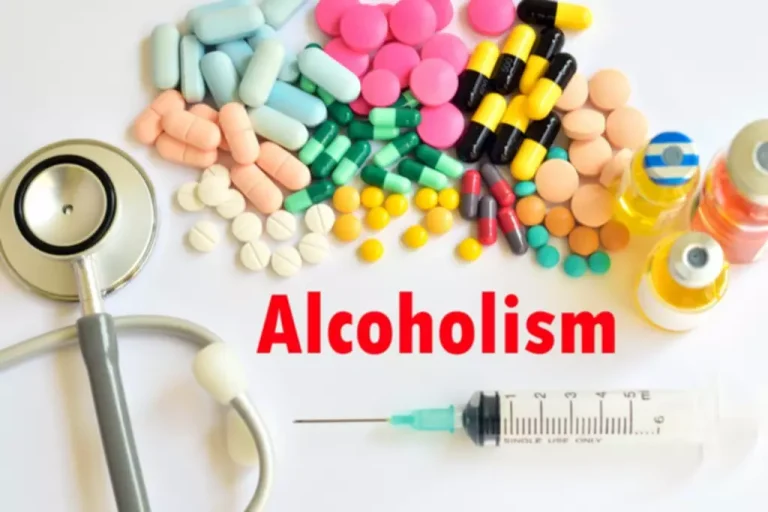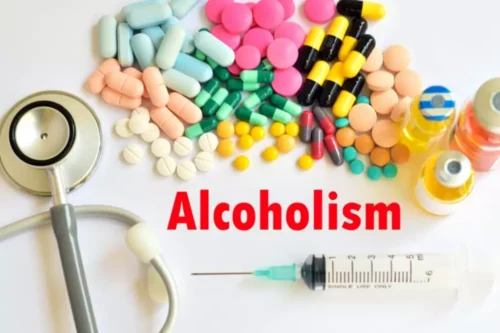Pancreatitis can be a short-term (acute) condition that clears up in a few days. But prolonged alcohol abuse can lead to chronic (long-term) pancreatitis, which can be severe. “The good news is that earlier stages of steatotic liver disease are usually completely reversible in about four to six weeks if you abstain from drinking alcohol,” Dr. Sengupta assures. Over time, your brain’s structure and function change, leading to tolerance, meaning you may require higher amounts of alcohol to achieve the desired effects. These brain changes contribute to the compulsive nature of addiction, making it difficult to abstain from alcohol.
Economic impact from long-term consumption of alcohol
Hangovers or withdrawal from alcohol can worsen anxiety symptoms, especially among people who drink heavily or those with alcohol use disorder. Anxiety occurs in addition to the typical health risks, which range from risky behaviors to weight gain, liver damage, and other physical effects. The physical short-term impact that alcohol has on the body starts almost immediately, leading to a range of physical impairments. Even after a few drinks, individuals may experience dizziness, nausea, slurred speech, and loss of coordination.
- Chronic alcohol use can impair intestinal barrier function, leading to “leaky gut,” dysbiosis, and nutrient malabsorption.
- Your liver detoxifies and removes alcohol from your blood through a process known as oxidation.
- Alcohol also relaxes the muscles in the throat causing snoring and sleep apnea to be worse,” Dr. Hildahl says.
- American Addiction Centers (AAC) is a leading provider of addiction treatment programs and has trusted treatment centers across the country.
- Always consult with a healthcare provider for personalized advice.
Sorting out the health effects of alcohol
But when you make drinking a lifestyle, alcohol starts playing a longer, darker game. It shrinks brain volume, damages neurotransmitters, and disrupts communication pathways. This can lead to memory loss, cognitive decline, anxiety, depression, and even permanent brain damage. Alcohol use can exacerbate long term effects of alcohol mental health conditions, like anxiety and depression, or lead to their onset.
How much alcohol is safe to drink?
Alcohol can lead to stomatitis, periodontal disease, and alterations in the oral microbiota. In the esophagus, alcohol’s toxic effects contribute to esophagitis, gastroesophageal reflux disease, and an increased risk of esophageal cancer, particularly when combined with smoking. Alcohol also affects gastric motility and mucosal integrity, contributing to conditions like gastritis, peptic ulcers, and eventually gastric cancer. Chronic alcohol use can impair intestinal barrier function, leading to “leaky gut,” dysbiosis, and nutrient malabsorption. These changes increase the risk of diarrhea and contribute to colorectal cancer development.
What is binge drinking?
Just one or two alcoholic drinks can impair your balance, coordination, impulse control, memory, and decision-making. Too much alcohol can also shut down parts of your brain that are essential for keeping you alive. Over the long term, alcohol can increase your risk of more than 200 different diseases, including in the liver and pancreas, and certain cancers. Though alcohol seems woven into the fabric of our social lives, drinking can have harmful health effects, even in small doses. Short-term and long-term effects of alcohol can negatively impact the mind and body, despite any potential benefits. While casual to moderate drinking may be a part of life for some, excessive or chronic alcohol consumption can significantly impact your body and long-term health.
Increased Risk of Sleep Disorders
- They produce less of the enzyme (called alcohol dehydrogenase, or ADH) that breaks down alcohol.
- From the tipsy exhilaration of a night out to the throbbing headache the next day, the influence of alcohol on our bodies is multifaceted and complex.
- The liver metabolizes most of the alcohol you consume, breaking it down into acetaldehyde.
- The liver is responsible for breaking down alcohol, but it can only process a certain amount at a time.
- Premature mortality is another large contributor to indirect costs of alcohol dependence.238 In 2004, 3.8% of global deaths were attributable to alcohol (6.3% for men and 1.1% for women).
“The direct cause is unknown, but alcohol is thought to cause neuropathy due to vitamin deficiencies from chronic drinking and the toxic effects from alcohol itself,” Dr. Hildahl says. Alcohol use increases the risk of chronic gastritis (stomach inflammation);3146 it is one cause of cirrhosis, hepatitis, and pancreatitis in both its chronic and acute forms. Because women tend to have less water in their bodies than men, if a woman and a man of the same weight drank the same amount of alcohol, the woman’s blood alcohol concentration (BAC) would likely be higher. This could help explain why women are more likely to have negative effects from alcohol. Reducing or quitting alcohol can lower your risk of these long-term effects and help you feel sharper, stronger, and healthier overall. Anything beyond that builds up in your system and strains the liver, slowly wearing it down.
Considering these hormonal dysregulations, unhealthy alcohol use can also contribute to low bone density for older men and post-menopausal women. Low bone density can increase the likelihood of osteoporosis, vertebral fractures, wrist fractures, and hip fractures. Drinking alcohol triggers the hormone vasopressin, which regulates your body’s water and salt levels. It signals the kidneys to take in more fluid and produce urine, increasing how much you urinate (pee).
This article discusses the long-term effects of alcohol, including the risks to your physical health and mental well-being. From a glass of wine Sober living home with dinner to a night out with friends or a celebratory toast, alcohol consumption is deeply ingrained in many social practices and cultural traditions worldwide. In the United States, over 84% of adults report drinking alcohol at least once in their lifetime. Relatively new research reveals that the pancreas aids the liver in metabolizing and detoxifying alcohol. However, binge drinking can be toxic to the delicate pancreas cells and cause a painful condition called alcoholic pancreatitis.
Many hangover symptoms arise due to detoxification, the physical process of ridding the body of toxic chemicals caused by alcohol consumption. Enzymes, mainly in the liver, metabolize (break down) alcohol, releasing a poisonous byproduct called acetaldehyde. This causes oxidative stress (an imbalance between helpful antioxidants and harmful free radicals that can lead to disease), marked by excess toxins in the body. Alcohol has the potential to cause so much harm to your health, but with treatment you can get sober and reverse many of the negative effects of alcohol on your body. Treatment for alcohol addiction may include medical detox, inpatient and/or outpatient rehab, and medications to support long-term recovery. During the metabolism of alcohol via the respective dehydrogenases, nicotinamide adenine dinucleotide (NAD) is converted into reduced NAD.
Heavy drinking can also lead to a host of health concerns, like brain damage, heart disease, cirrhosis of the liver and even certain kinds of cancer. Alcohol is a central nervous system depressant that has immediate effects on the body, like intoxication (feeling drunk) and hangovers (unpleasant aftereffects from drinking). While these effects are short-lived, long-term alcohol use can trigger systemic (bodywide) inflammation, which damages the body’s tissues and vital organs over time.






